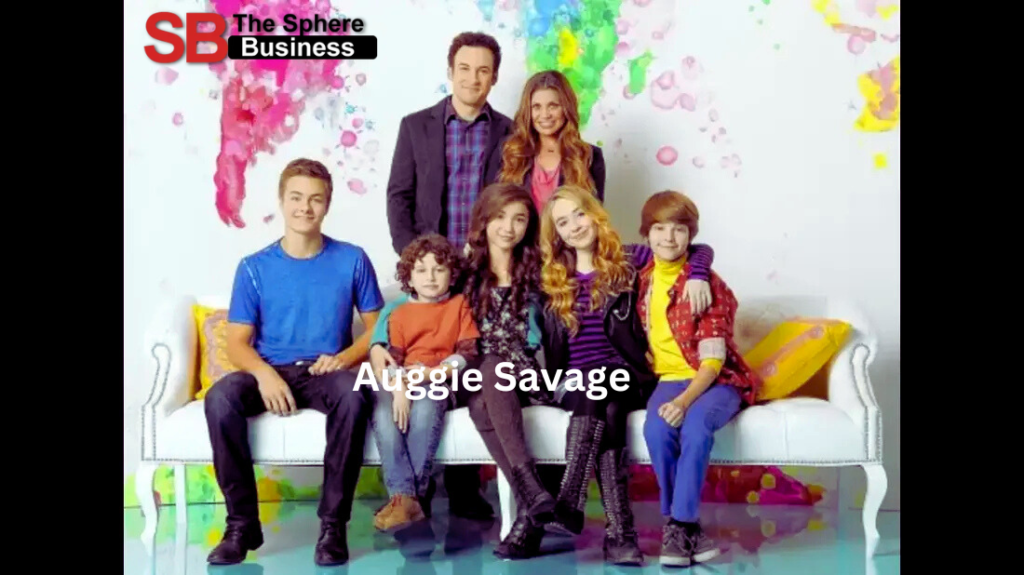Understanding the Impact of “Auggie Savage” in Contemporary Culture

Introduction to “Auggie Savage”
The term “Auggie Savage” may not ring a bell for many, but its significance has been shaping discussions in various fields, from literature to pop culture. While it may initially appear as a niche reference, its implications are far-reaching, serving as a cultural touchstone that connects themes of identity, resilience, and the complexities of human experience.
The Origin of “Auggie Savage”
“Auggie Savage” finds its roots in popular literature and media. The character of Auggie is often depicted as someone facing significant challenges—be they social, emotional, or physical. This representation resonates with audiences, particularly in an era that values authenticity and relatability. Understanding where Auggie comes from helps illuminate the broader themes at play.
Character Analysis of Auggie
Background and Development
The character of Auggie Savage is typically characterized by his unique personality traits and experiences. Often portrayed as an underdog, Auggie faces adversity that tests his resilience. This journey mirrors the struggles faced by many individuals in society, making him a relatable figure for audiences across various demographics.
Themes of Identity and Acceptance
One of the central themes surrounding Auggie Savage is the exploration of identity. Characters like Auggie challenge societal norms and expectations, prompting audiences to reflect on their own identities. This exploration is particularly relevant in today’s world, where discussions around self-acceptance and the impact of societal perceptions are more prominent than ever.
The Cultural Significance of “Auggie Savage”
A Reflection of Societal Challenges
The story of Auggie Savage serves as a mirror to contemporary societal challenges. From issues related to bullying and mental health to the quest for belonging, Auggie’s narrative encapsulates many of the struggles faced by individuals in modern society. By engaging with Auggie’s story, audiences can find solace and understanding, encouraging discussions that can lead to positive change.
Representation in Media
In recent years, the representation of characters like Auggie has gained traction in various forms of media. Television shows, films, and literature have increasingly featured characters who grapple with their identity and face societal challenges. This shift toward more authentic representation not only empowers individuals who relate to these stories but also educates those outside these experiences.
The Journey of Auggie: Resilience and Growth
Overcoming Obstacles
Auggie’s journey is often marked by significant obstacles that he must overcome. These challenges may range from interpersonal conflicts to internal struggles with self-doubt. By portraying his journey, creators highlight the importance of resilience and perseverance, inspiring audiences to confront their own challenges.
Lessons on Empathy and Understanding
Auggie’s experiences encourage audiences to cultivate empathy and understanding. As viewers witness Auggie’s struggles and triumphs, they are invited to reflect on their own biases and perceptions. This fosters a culture of empathy, prompting individuals to look beyond appearances and understand the complexities of others’ lives.
Auggie Savage in Literature and Film
Literary Representation
In literature, Auggie Savage is often explored through various narrative styles. Authors may choose first-person accounts to provide a deep dive into Auggie’s psyche, allowing readers to experience his emotions firsthand. This literary approach can foster a profound connection between the reader and the character, making Auggie’s journey more impactful.
Cinematic Adaptations
The transition of Auggie’s story to the big screen has also played a crucial role in amplifying his message. Films that depict Auggie’s struggles often incorporate visual storytelling techniques that enhance emotional resonance. Cinematic adaptations bring to life the nuances of his character, further engaging audiences and allowing them to empathize with his experiences.
Community and Support Networks
The Role of Friends and Family
A significant aspect of Auggie’s journey involves the support he receives from friends and family. These relationships play a vital role in his development, emphasizing the importance of community in overcoming adversity. Such portrayals highlight the idea that individuals are not alone in their struggles and that support systems can provide essential encouragement.
Advocacy and Awareness
Characters like Auggie Savage also serve as catalysts for advocacy and awareness. By addressing issues such as bullying, mental health, and acceptance, Auggie’s story prompts discussions that can lead to actionable change. Advocacy groups often use narratives like Auggie’s to raise awareness and create initiatives that promote acceptance and understanding.
The Legacy of Auggie Savage
Inspiring Future Generations
The legacy of Auggie Savage lies in its ability to inspire future generations. His story encourages young people to embrace their uniqueness and advocate for themselves and others. By cultivating a culture of acceptance and understanding, Auggie’s narrative can have lasting effects on how individuals perceive themselves and their peers.

A Template for Change
Auggie Savage serves as a template for change in media and society. As creators continue to tell stories that challenge societal norms and foster empathy, the impact of characters like Auggie will only grow. This shift in storytelling can lead to a more inclusive and understanding society, where individuals feel empowered to share their stories and embrace their identities.
Conclusion
The journey of Auggie Savage is one that resonates deeply with many, encapsulating themes of identity, resilience, and the power of community. As we continue to explore and discuss the complexities of human experience through characters like Auggie, we pave the way for greater empathy and understanding in our society. Ultimately, the story of Auggie Savage is not just about one individual; it reflects the universal struggles that connect us all, encouraging us to embrace our uniqueness and support one another in our journeys.